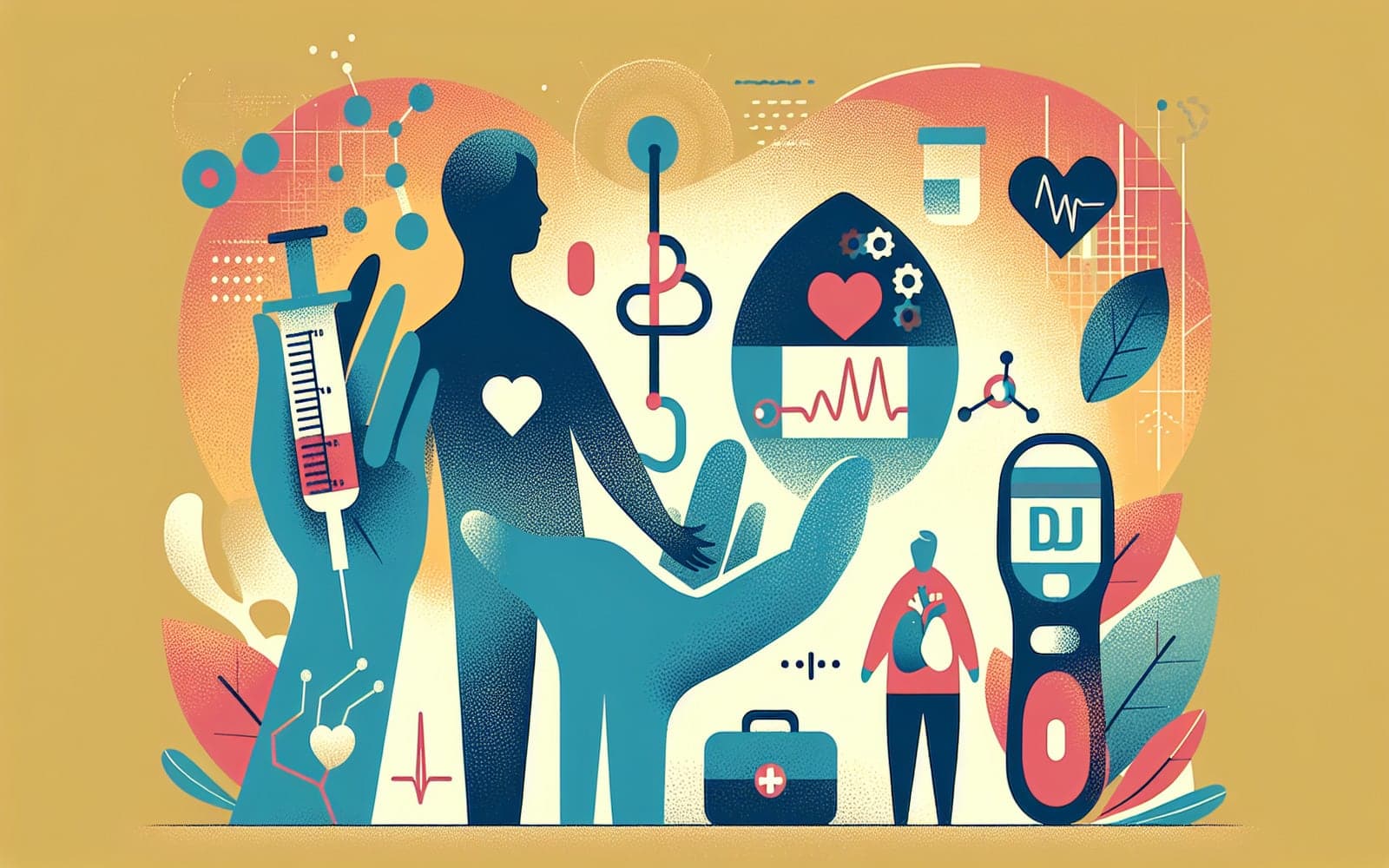What Causes Hypoglycemia in Non-Diabetics?
What Causes Hypoglycemia in Non-Diabetics?
The Big Picture
Hypoglycemia isn't just a concern for diabetics; it can affect others too. Discover the unexpected causes of low blood sugar in people without diabetes.
Contents
- Understanding Hypoglycemia
- Common Triggers for Hypoglycemia
- The Role of Whipple's Triad
Understanding Hypoglycemia
Hypoglycemia occurs when your blood sugar drops too low, causing symptoms like dizziness, confusion, and weakness. In non-diabetics, it can happen due to various reasons, such as skipping meals or strenuous physical activity. Whipple's triad is key in diagnosing hypoglycemia: symptoms, low blood sugar levels, and symptom relief after sugar intake.
Common Triggers for Hypoglycemia
For healthy individuals, the main causes of hypoglycemia can be endogenous hyperinsulinism or factitious hypoglycemia. In contrast, those with existing health issues might experience it due to medications, alcohol, or underlying illnesses like adrenal insufficiency. Identifying these triggers is crucial for effective management.

The Role of Whipple's Triad
Whipple's triad plays a vital role in hypoglycemia diagnosis. It consists of three criteria: experiencing symptoms that align with hypoglycemia, having a low blood glucose level confirmed by lab tests, and the resolution of symptoms once blood sugar levels are corrected. Meeting these criteria helps distinguish true hypoglycemia from other conditions.
FAQs
What is the main cause of hypoglycemia in non-diabetics?
Endogenous hyperinsulinism or factitious hypoglycemia are often the main causes.
How does Whipple's triad help in diagnosis?
It confirms hypoglycemia by checking symptoms, low blood sugar, and recovery after sugar intake.
Can medications cause hypoglycemia?
Yes, certain medications and alcohol can trigger hypoglycemia.
What symptoms suggest hypoglycemia?
Symptoms include dizziness, confusion, and weakness.
Key Takeaways
Understanding the causes of hypoglycemia can lead to better management and prevention.
Additional References
- Cryer PE, Axelrod L, Grossman AB, et al. Evaluation and management of adult hypoglycemic disorders: an Endocrine Society Clinical Practice Guideline. J Clin Endocrinol Metab 2009; 94:709.
- Service FJ. Classification of hypoglycemic disorders. Endocrinol Metab Clin North Am 1999; 28:501.
This article has been reviewed for accuracy by one of the licensed medical doctors working for Doctronic.











